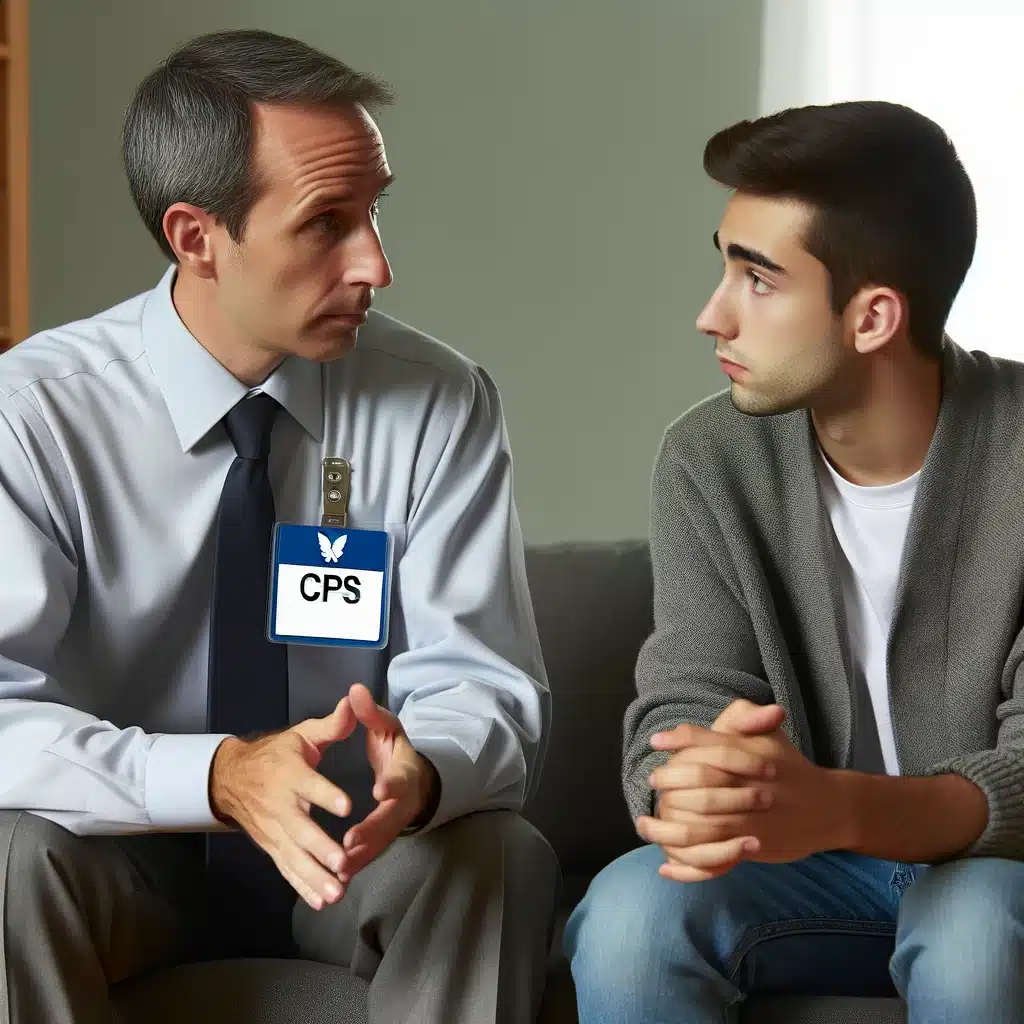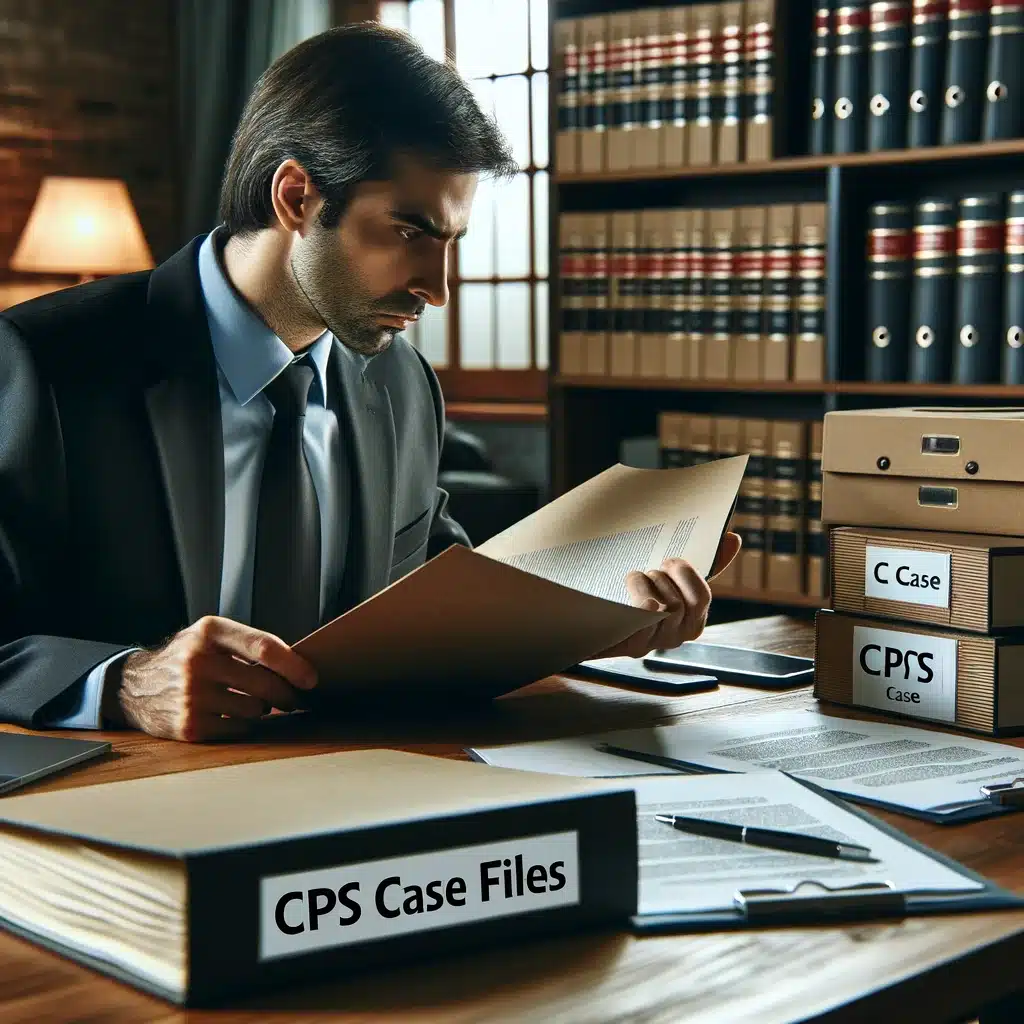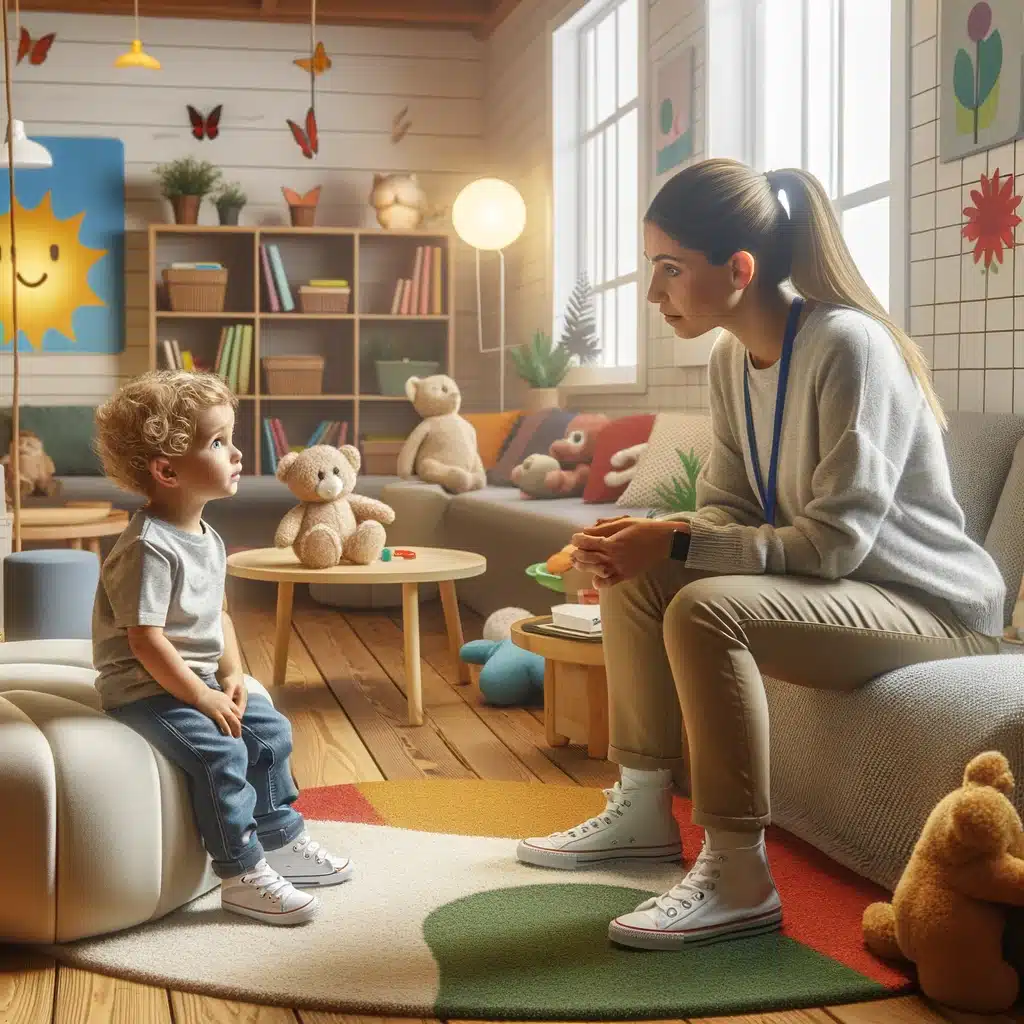
In a contested CPS case, you’re likely navigating the involvement of this state agency for the first time. One of the most common queries we receive at the Law Office of Bryan Fagan pertains to what CPS can and cannot do during an investigation involving you and your family. Undoubtedly, CPS wields considerable authority when investigating allegations of child abuse or neglect. Empowered by the state, the Department of Family and Protective Services can initiate investigations, gather evidence, and ultimately decide whether removing your child from the home is warranted.

During this time, you and your family need to consider what actions you can take to protect your rights and your children’s rights and to minimize CPS involvement in your lives. While CPS intervention may be inevitable in some situations, it’s important not to passively accept it. Instead, actively focus on reducing the risk of your child being removed from your home and swiftly resolving the case.
If you have ever gone through a family law case before then you will immediately notice that there are differences between a child custody and divorce case and a CPS case. Let’s walk through those differences right now and then we can discuss what CPS can and cannot do regarding your case. This time why one of the most frustrating parts of a CPS case is believing that the agency does not have a certain authority to act in some way when they do.
The most significant difference between a family law case and a CPS case is that in a family law case your opposing party is almost always your spouse or a Co-parent. This means there you will have an opportunity to negotiate with your opposing party in the family law case on a nearly constant basis. While going through a divorce does mean that you could end up in a courtroom ultimately, he will also have ample opportunity to work through the issues of your case in a settlement. The most efficient use of your time in any child custody or divorce case is to negotiate with your opposing party to see if you can conclude your matter amicably rather than in the courtroom.
Contrary to other legal cases, negotiating with the state agency in a CPS case isn’t continuous. While maintaining regular contact with CPS throughout the case is possible and advisable, there’s generally less negotiation involved. If CPS concludes that your child has been abused or neglected, they may proceed to remove your child from the home. In which case, you and CPS will establish certain goals in terms of reunification with you and your home or replacement of your child outside the home moving forward. This represents an opportunity for you to negotiate with CPS at various points in your case.
However, engaging in regular negotiation with CPS is not a reality for the most part. Rather, CPS is a state agency and the caseworker assigned to your case will have many different investigations going on at the same time as a result, with unlikely that he or she will be able to devote as much time as you’d have to the case. The result is that CPS cases do not follow the same track as a family law case as far as always being able to reach out to your opposing party to see if you can speed up the process or avoid future hearings.
On the other hand, GPS cases do follow a predictable process in terms of hearing dates and other milestones. All in all, the CPS case should not last more than one year. While involved in a CPS case, you will have initial hearings before a CPS court judge, opportunities to engage in dialogue with the agency and develop goals for yourself, and a chance to take advantage of different programs made available through the state. These programs can assist you in achieving the objectives of your safety plan and ultimately facilitate the return of your child to your home, if that aligns with the goals of both you and CPS.
On a more informal level, probably the most significant difference between CPS cases and a typical family law case is that in a family law case the process happens right in front of you. This means that you will be able to keep up with the process by standing communication with your attorney. You and your lawyer can easily review any filings made in the case by your opposing party by accessing them online. On the other hand, in a CPS case unless something happens through the court there is a great deal that can occur without your knowledge behind the closed doors of CPS.

The CPS caseworker and their supervisor can have meetings about the investigation into your family conduct the investigation generally and even interview people in your life you may have more information to provide. All of this can be done without your permission or knowledge. For that reason, it is recommended that you work with an experienced family law attorney during a CPS case. Defending yourself and your family in matters related to your children can be tedious, difficult, and stressful. Having someone by your side who has been there before and who can offer you a path towards an efficient resolution to this matter can be extremely helpful.
Just like we see in family law cases, CPS cases do not pause the rest of your life. While you may have a child involved in a CPS case you may have other children who are not. Their lives, your work life, other obligations, and the case itself will all take up time in your life. it’s not as if you can take your remote control and press pause for the rest of your life to handle the CPS matter. Rather, the rest of your life will keep moving on whether you can commit as much attention as you would like to it. It would make sense if we have someone by your side who can understand the law, help apply the law to your case and also hold CPS accountable. The attorneys with the Law Office of Bryan Fagan are equipped to do just that.

The reality of the situation is that the CPS caseworker cannot speak to your child without your permission. For example, if you deny them the ability to speak to you or your child at the beginning of a case and CPS must honor that. This would prevent them from speaking to your child outside of your presence at their school.
However, there are some exceptions to this general rule that I think merit some mention here. First, if your child is in your home with another adult and CPS comes to the door and asks to speak to him or her then that adult could potentially permit for CPS to enter the home and speak to your child. At that time, CPS would have the right to speak to your child even if you didn’t grant them permission to do so. This can be likened to how a police officer may be permitted to enter your home by someone other than yourself, as long as that person is over the age of 18.
Another important exception to this rule involves CPS taking temporary conservatorship rights over your child. For instance, if CPS determines the need to remove your child from your home to ensure protection, it must conduct an emergency hearing before the judge and present evidence justifying the need for emergency removal. If the judge approves the request for emergency removal, it places the child in temporary custody primarily under CPS. This action doesn’t terminate your parental rights but grants CPS the authority to make decisions on behalf of your child.
Once CPS gets temporary possession of your child it would be able to speak to your child but any number of subjects. Even if CPS places your child in foster care or even with a family member of yours CPS could still reach out and speak to your child at school or the other person’s home. CPS can establish temporary conservatorships over your child in certain situations, even if your child remains in the home.
The other part of a CPS case that bears mentioning here is that CPS can work with you on the creation of a parenting plan. That parenting plan or safety plan will require you to follow certain rules and meet certain benchmarks to conclude their case or even have your child returned home. Sometimes this safety plan could include things like repairing a defect in your home that is dangerous. In other circumstances, it could involve something like attending Co-parenting courses or treatment sessions for alcohol or drug abuse. Normally, courts do not issue safety plans. However, CPS cannot use your failure to comply with or adhere to a safety plan against you in your case.
Navigating a contested CPS case can be an overwhelming experience, especially when questions arise about the agency’s authority. At the Law Office of Bryan Fagan, we understand the importance of clarifying what CPS can and cannot do during their investigations. While CPS possesses significant power to initiate inquiries and assess the need for child removal, it’s essential to know your rights and limitations as a parent. Seeking legal guidance can provide invaluable support and help you navigate the complexities of the process with confidence. By understanding what CPS cannot do, you can better protect your family’s interests and ensure a fair resolution to the case.
 If you want to know more about what you can do, CLICK the button below to get your FREE E-book: “Child Protective Services E-Book.”
If you want to know more about what you can do, CLICK the button below to get your FREE E-book: “Child Protective Services E-Book.”CPS (Child Protective Services) in Texas cannot determine legal guilt or innocence in abuse or neglect cases. Their role is to investigate and ensure the safety of the child.
In Texas, you retain the right to due process during CPS investigations and proceedings. You also possess the right to legal representation, the right to challenge false allegations, and the right to be heard in court.
Yes, a judge in Texas can overrule CPS decisions if they find evidence or legal reasons to do so. Judges ensure that CPS actions align with the best interests of the child and legal requirements.

Bryan Fagan, a native of Atascocita, Texas, is a dedicated family law attorney inspired by John Grisham’s “The Pelican Brief.” He is the first lawyer in his family, which includes two adopted brothers. Bryan’s commitment to family is personal and professional; he cared for his grandmother with Alzheimer’s while completing his degree and attended the South Texas College of Law at night.
Married with three children, Bryan’s personal experiences enrich his understanding of family dynamics, which is central to his legal practice. He specializes in family law, offering innovative and efficient legal services. A certified member of the College of the State Bar of Texas, Bryan is part of an elite group of legal professionals committed to ongoing education and high-level expertise.
His legal practice covers divorce, custody disputes, property disputes, adoption, paternity, and mediation. Bryan is also experienced in drafting marital property agreements. He leads a team dedicated to complex family law cases and protecting families from false CPS allegations.
Based in Houston, Bryan is active in the Houston Family Law Sector of the Houston Bar Association and various family law groups in Texas. His deep understanding of family values and his professional dedication make him a compassionate advocate for families navigating Texas family law.